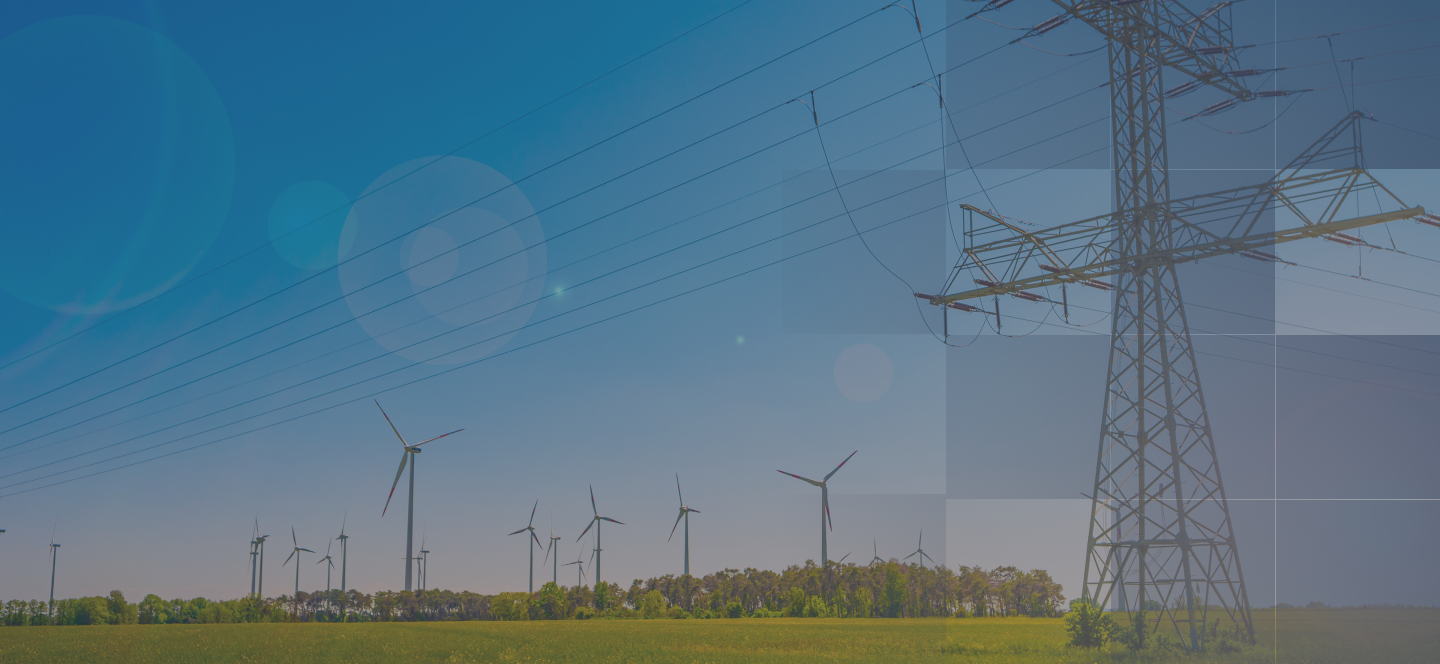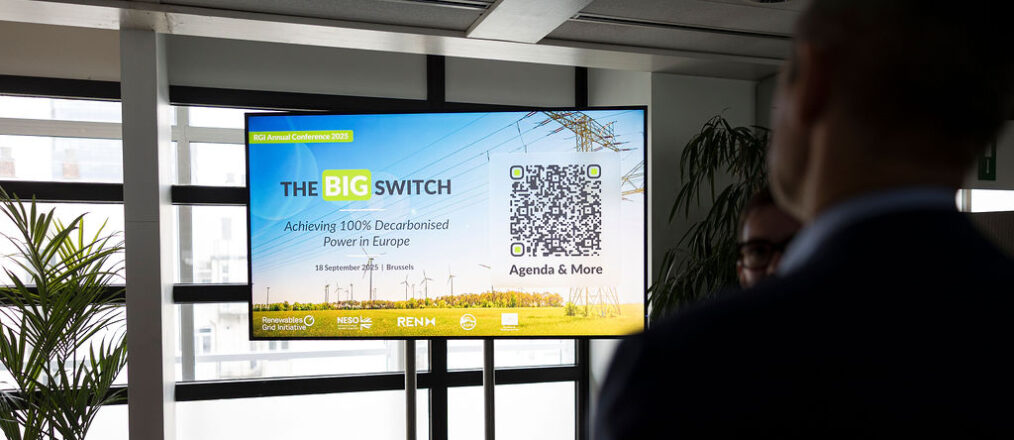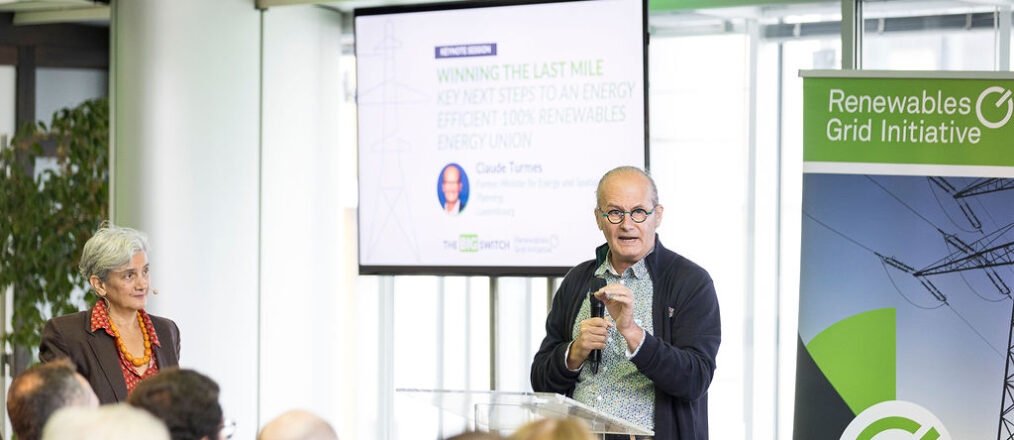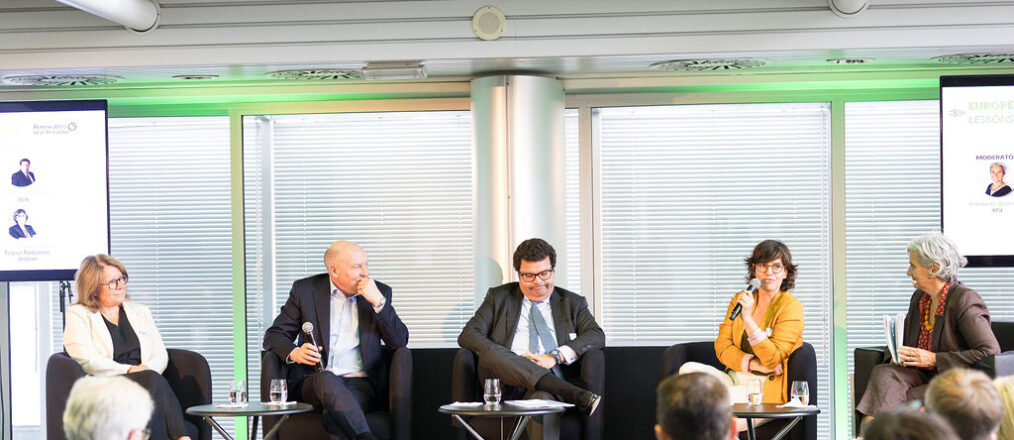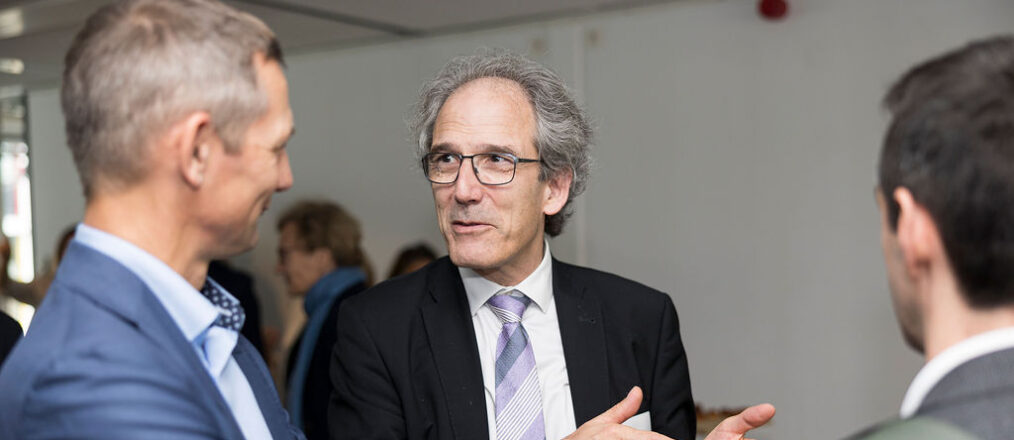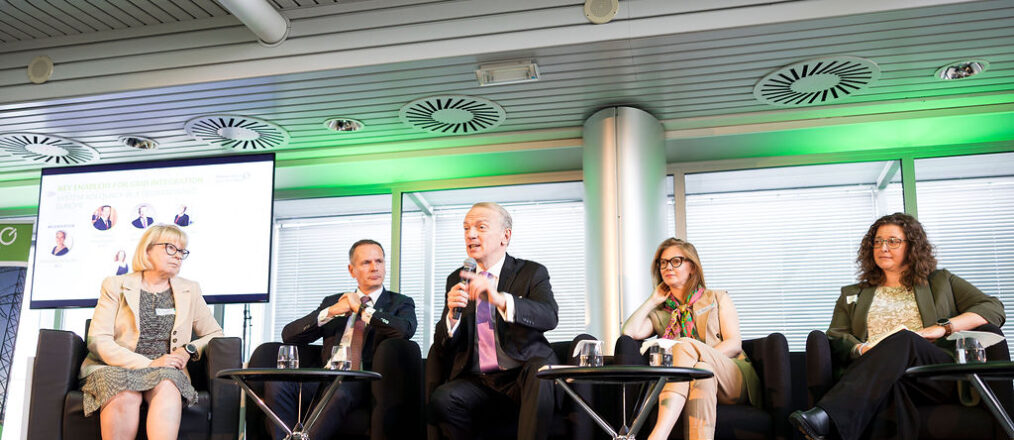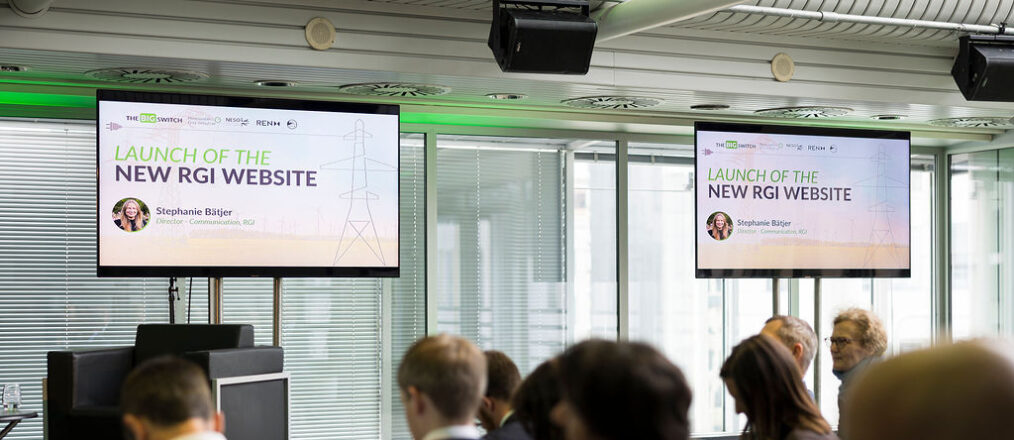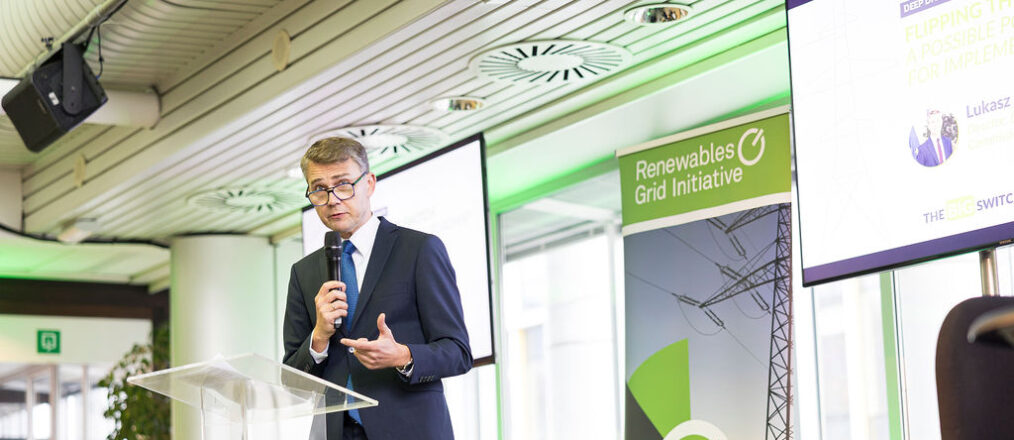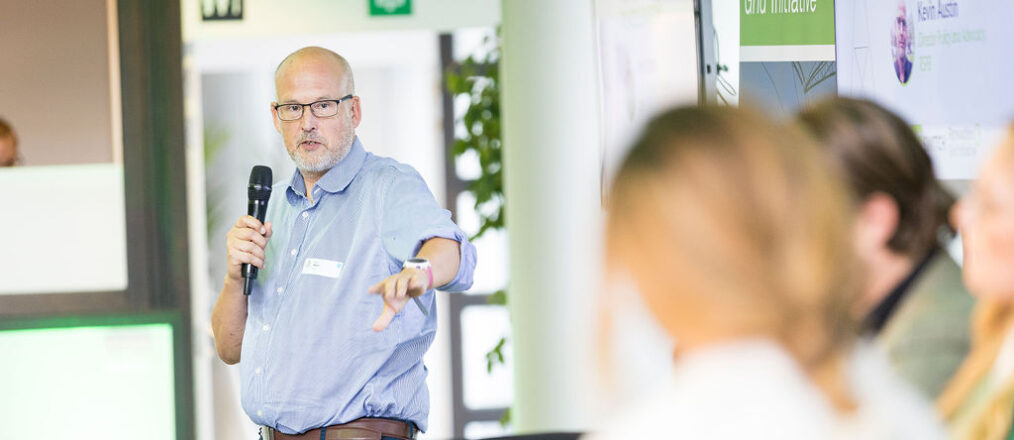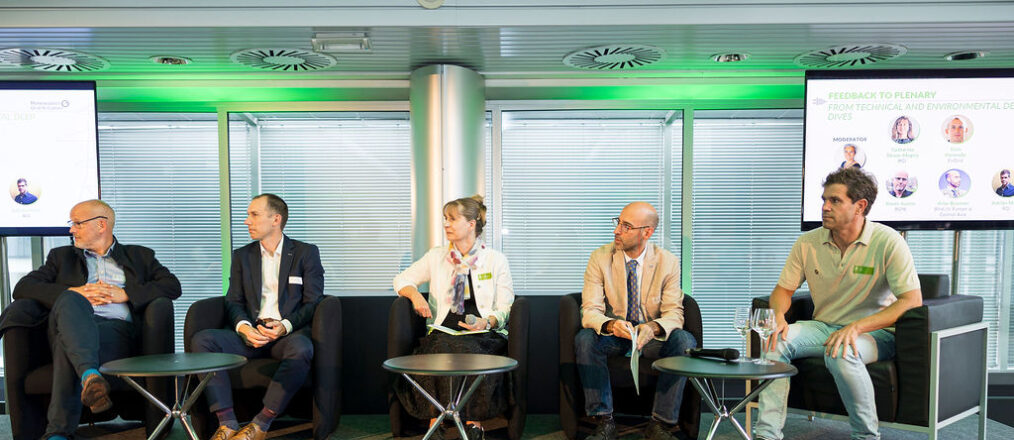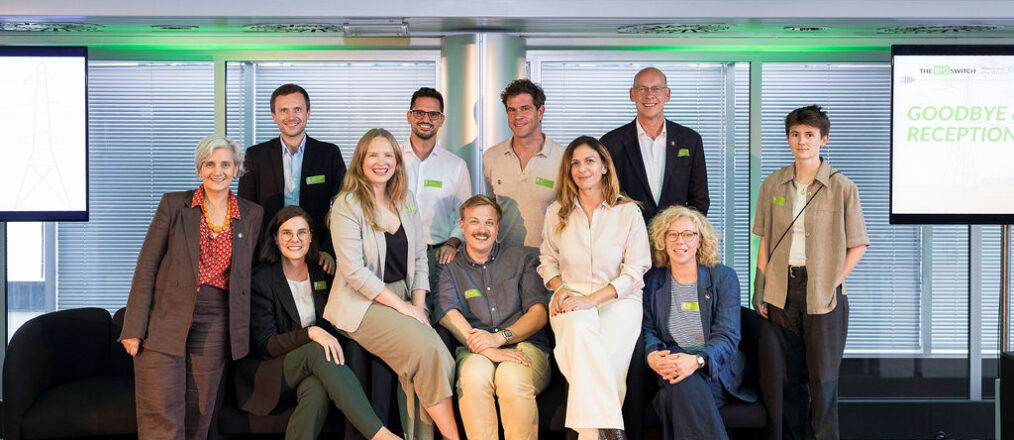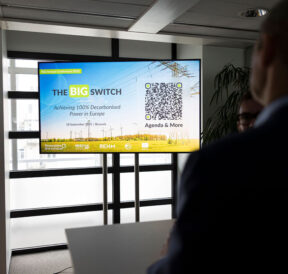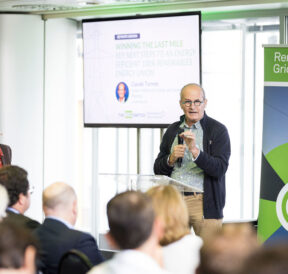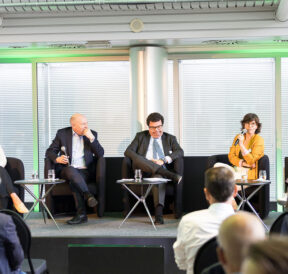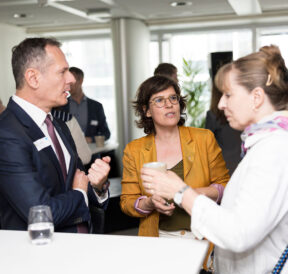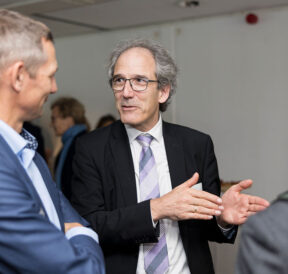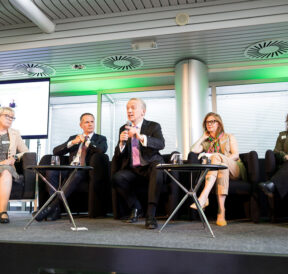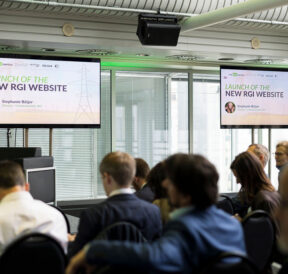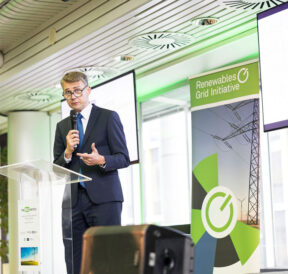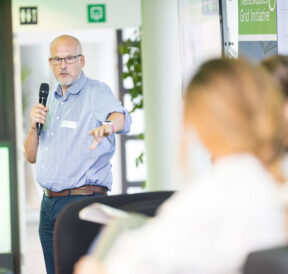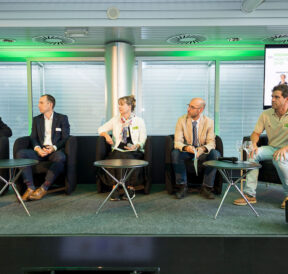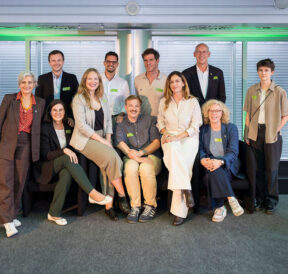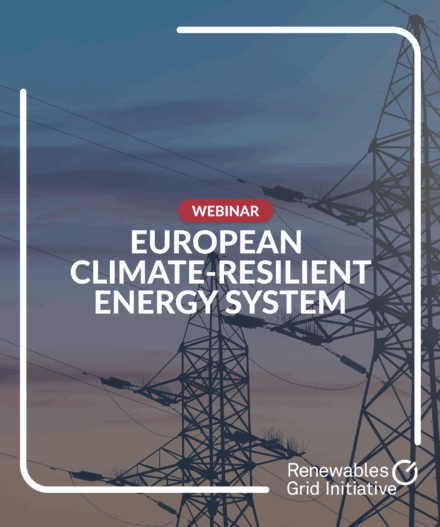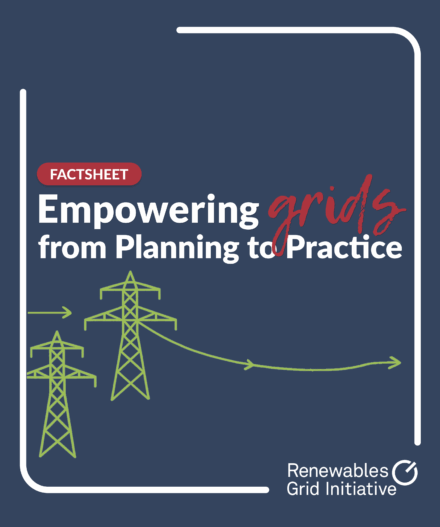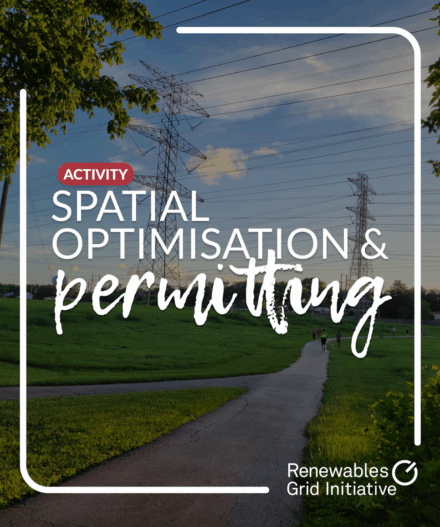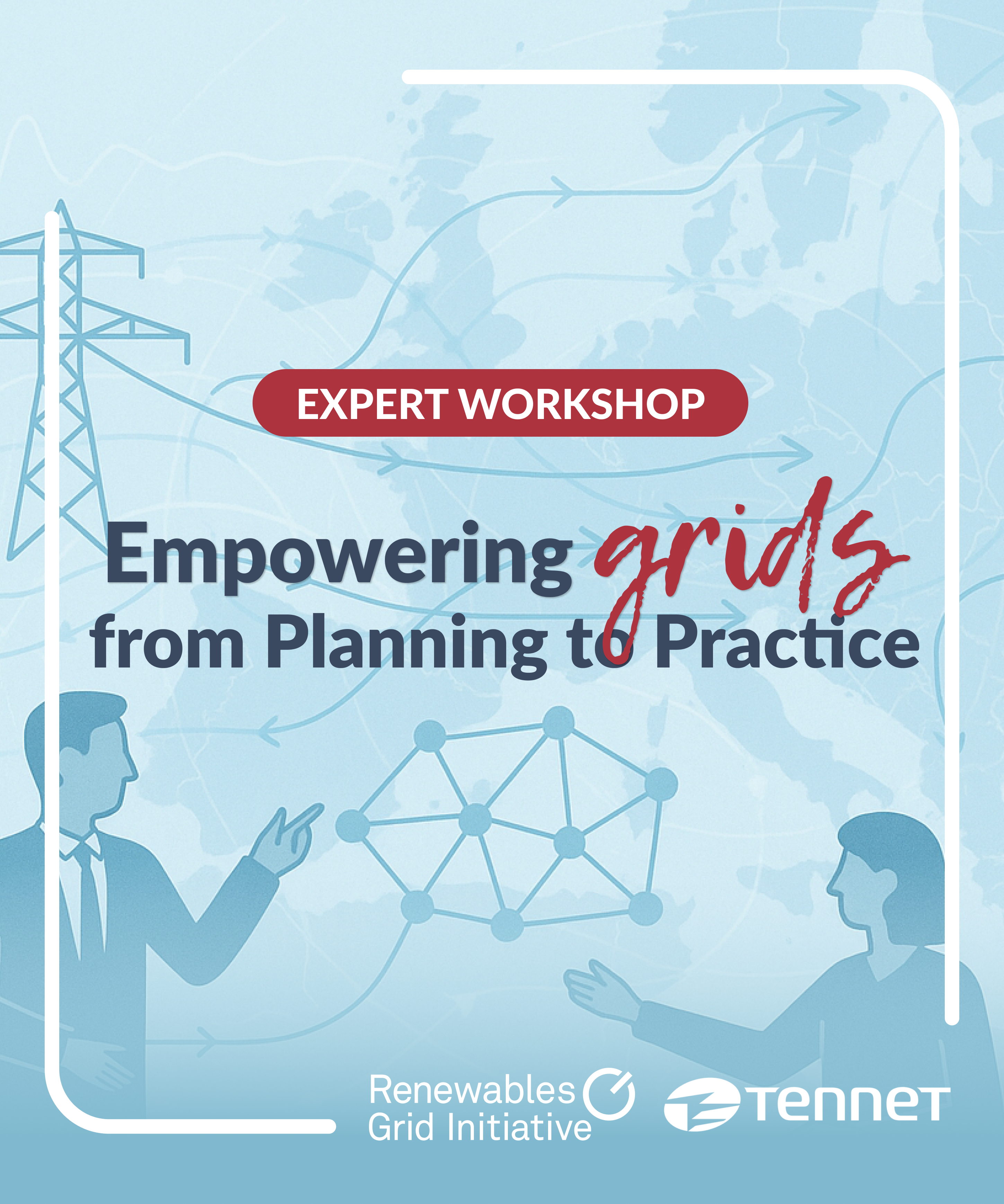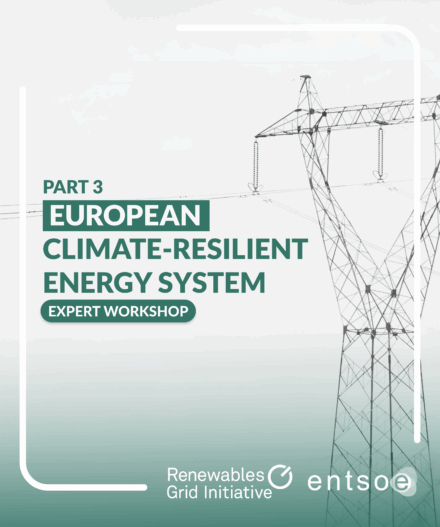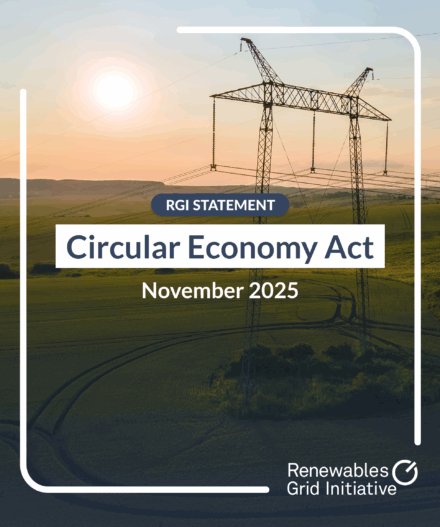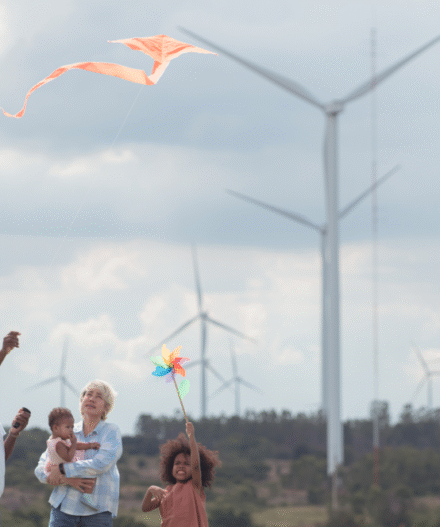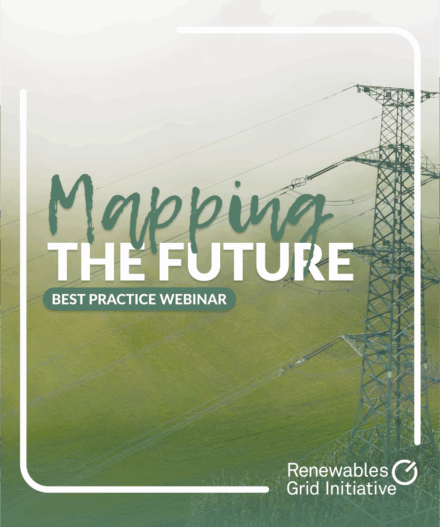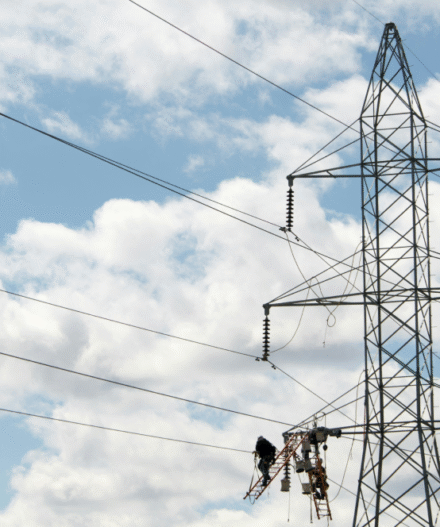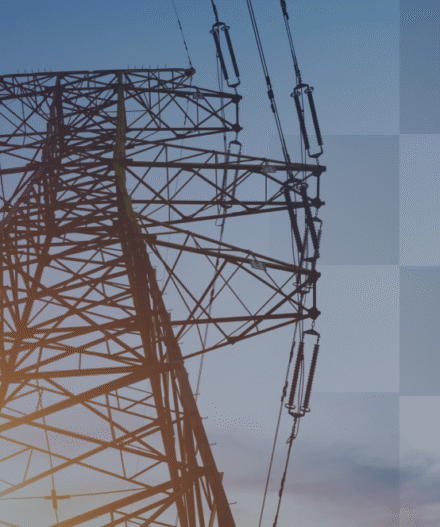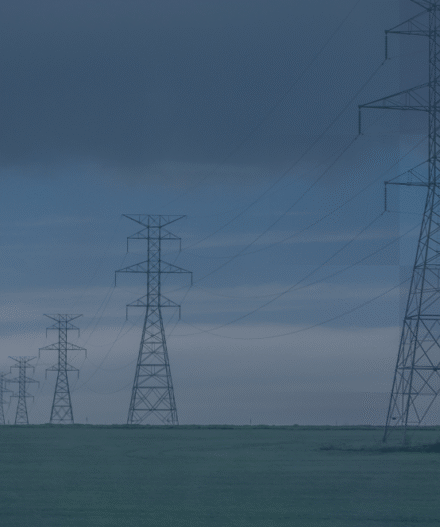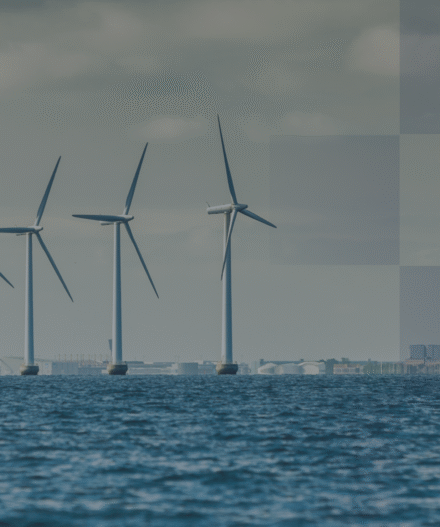Organised by: RGI, NESO, REN & RSPB
Join us to explore cross-border and cross-sectoral integrated planning, innovative flexibility and demand-side measures, strategic environmental compensation approaches, and the policy and regulatory frameworks enabling a decarbonised grid. Hear from grid operators, regulators, environmental NGOs and other key stakeholders. Sign up now!
Introduction
Electricity will play an increasingly dominant role in European economies due to its inherent efficiency. Replacing fossil fuels with decarbonised electricity across sectors like transport, heating, and industry will massively increase the need for electricity generation and delivery to areas of high demand.
The tripling of renewable energy sources (RES) targets, as agreed by nearly 200 countries at COP28 in 2023, should help meet the increasing demand driven by electrification. Already, several European countries can operate their systems entirely on decarbonised or renewable power for extended periods, sometimes lasting several days or weeks. Examples from major economies, including the UK, Ireland, Belgium and Portugal, demonstrate that the energy transition is not only possible but already underway.
At the same time, operating power systems with increasing shares of wind and solar requires transmission system operators (TSOs) to adopt innovative technical and operational solutions. They must also develop contingency plans and access flexibility resources whenever needed. A supportive regulatory framework is vital to enable these changes and reward effective operational practices and coordination across the entire energy system value chain.
Ensuring system stability and security, particularly during periods of stress, is essential as we progress towards delivering a zero-carbon grid. This includes establishing adequate technical requirements and developing system services that can accommodate the increasing share of variable renewable energy sources. Lessons learned from recent events, need to inform and shape future actions and policies.
The Big Switch
The conference will spotlight pioneering examples of energy system transformation from several European countries. It will highlight how grid operators are preparing and how stakeholders are adapting to this new reality. Key topics to be explored include the importance of integrated planning across borders and sectors, flexibility and demand-side solutions, environmental integration, and policy and regulatory enablers.

To ensure the energy transition does not come at the expense of nature, the 2025 RGI Annual Conference, co-organised with NESO, REN, and RSPB, will show how new approaches for strategic environmental protection can contribute at accelerating the energy transition, contribute to nature positive infrastructure, foster public support, and deliver lasting ecological value.
Agenda & Speakers
Welcoming session, setting the scene for the day


This panel will talk about the grid that Europe requires to become fully decarbonised. What is most essential to ensure stable power systems that are ready for a full energy transition? What can we learn from recent successes and setbacks? Panellists will share examples and strategies from major economies, in which the energy transition is already well underway – the UK, Portugal and Belgium – and discuss related implications for European policy decisions.





Generation, supply and demand – all relevant dimensions to consider when discussing the operational, technical and structural measures in support of grid integration of renewables. Panellists will bring all three perspectives to this discussion about a successful, timely and affordable energy transition. So, what do they all need – technically speaking – to move the transition forward? Better cross-border and cross-sectoral integrated planning, more innovative flexibility measures or increased demand-side solutions? We will hear examples of what is working, and what is not, from different countries and stakeholders, and discuss which lessons on adequacy and innovation they should teach Europe as a whole.







Challenger

Challenger

While developing and constantly technically enhancing our electricity system is one of the pressing challenges of our time, so is making sure that this endeavour is not worsening but instead bettering our biodiversity crisis. However, when discussing the environmental side of grid development, there is often a tendency to focus on the details of project planning. This panel will zoom out on the subject and strive to discuss a more strategic, big picture approach to environmental protection and how it could contribute to acceleration of system planning and deployment.







Technical deep dive – European decarbonisation: Can we get better and faster?

Technical deep dive – European decarbonisation: Can we get better and faster?

Environmental deep dive – Owls, Powerlines, and People: Rethinking Impacts through GINGR’s Nature-and People-Positive Approach

Environmental deep dive – Owls, Powerlines, and People: Rethinking Impacts through GINGR’s Nature-and People-Positive Approach

Environmental deep dive – Owls, Powerlines, and People: Rethinking Impacts through GINGR’s Nature-and People-Positive Approach

Concluding remarks from the conference discussions
contact
Mara Zainea
mara[at]renewables-grid.euManager – Communication

Stephanie Bätjer
stephanie[at]renewables-grid.euDirector – Communication


Funded by the European Union. Views and opinions expressed are however those of the author only and do not necessarily reflect those of the EU or LIFE Programme. Neither the EU nor the granting authority can be held responsible for them.


